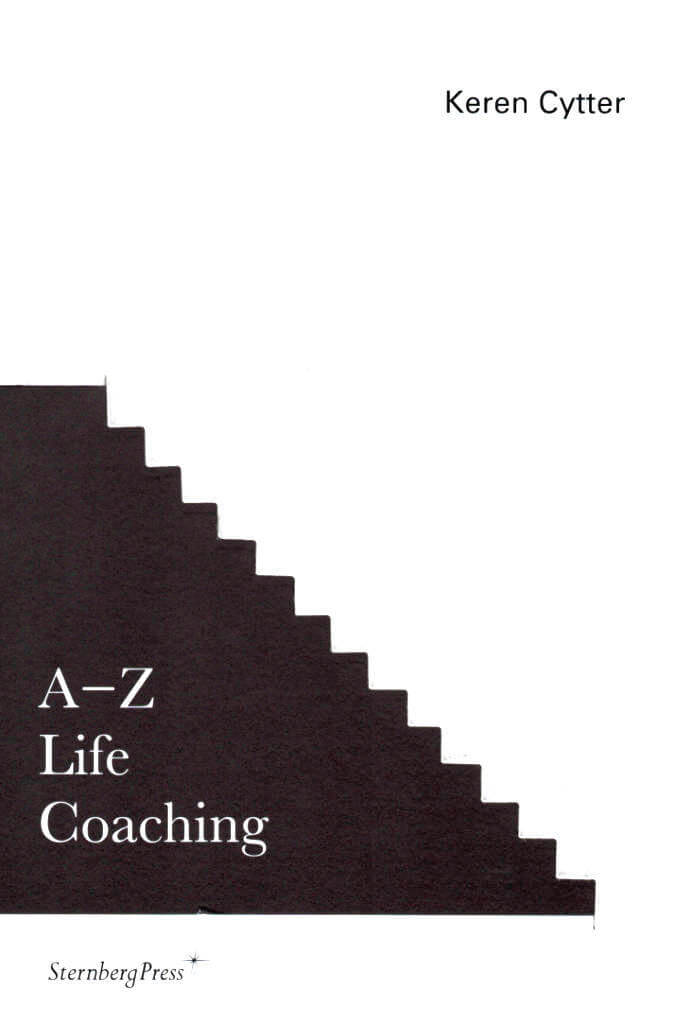
A-Z Life Coaching
A novel by Keren Cytter: an incomplete guide for life.
Each person written about is represented by a letter, and when an object turns into a subject it is marked in bold. The form of life coaching described in this book won't lead the reader to social recognition or financial success. If one of the two occurs after reading this text, it is a coincidence. This book aims to expose the owners of an innocent heart to reality's true structures and to utilize them for spiritual growth so their soul and body evaporate into the abstract. This book was written from the middle. The contents of these pages have been modified numerous times. Notes were taken, ideas were rewritten—the ones that survived bare the most essential guidelines and wisdom for life.
Published on the occasion of the exhibition “Keren Cytter – Selection”, Künstlerhaus, Halle für Kunst & Medien, Graz, from June 11 to September 8, 2016.
Language: English







